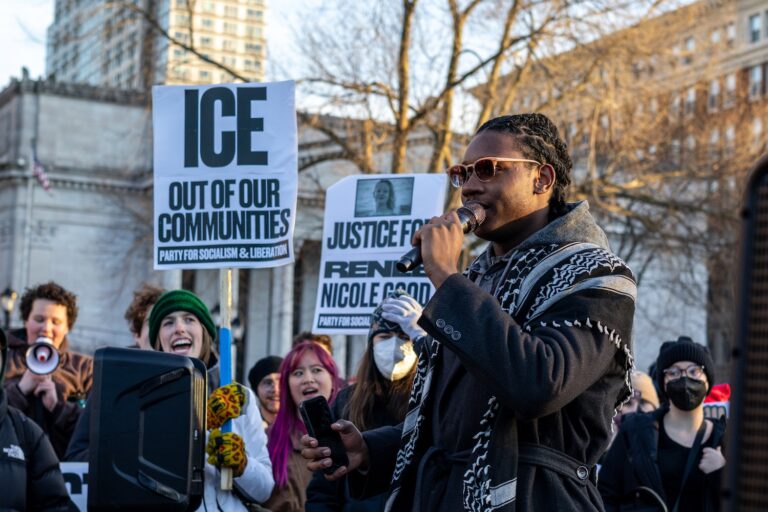Unconscious Sexism, or Why I Won’t Stop Talking About Twilight (And Why You Shouldn’t Either)
I’m not an art historian; I’m not a professional critic, nor would I even pretend to be one. But I am a student of politics and history, of the way social power is manipulated, and the way it controls us who would try to understand it. I’m not Theo Adorno, nor would I pretend to understand what he had to say about the culture industry; but you don’t have to be a philosophical genius to understand the subversive techniques of manipulation and domination inherent in some manifestations of art. Imbued in the seemingly banal essence of the Twilight saga is a history of domination as old as the art of fantasy itself—it is why Plato wanted to banish the poets from his Republic, and why authors like Ovid were expelled from their countries. Literature is a vehicle for the expression of social power and social norms, and while we shouldn’t ban or censure artists, it is important to recognize the subversive themes that permeate popular culture: for example, the discourse of sexism in Twilight.
Like most problematic fantasy novels, Twilight’s sexism is carefully veiled by the exterior of a fantastical, “fake” world. Bella’s great act of agency, choosing whom to love, is not seen as problematic because she is choosing between a vampire and a werewolf (they don’t exist, silly!). The problem is of Bella’s existence as an object of abuse and desire; the idea that a woman’s identity is tied to the man she’s in love with; the sexist notion that that is what women should be; all of these problems are covered, buried under the “fantasy” world of Forks, Washington.
Even the problematic dialogue of race, the notion that Native Americans are dangerous, savage people, liable to go off and physically abuse their partners, who should just take it because “it’s a burden he has to bear,” is obscured by the fact that the Native Americans are werewolves. I mean it’s fine if a werewolf beats up his girlfriend—it’s just his burden. Just like it’s fine if a vampire stalks and emotionally abuses his girlfriend by being incredibly jealous and keeping her from seeing other people—it’s for her own protection.
The fact that these characters are placed behind the veil of “fantasy” removes their responsibility for their actions; because Bella is human and in love with a vampire, though, she needs to be protected at all costs, removed from society, shut up in a house. She may have entered into a more powerful world, but it is a world that justifies the patriarchal structure via physical power, a world where her ideal man stares at her when she sleeps, and tries to keep her from seeing other people. The cruel reality of Bella’s condition is that she has only subjugated herself more by “escaping” the real world.
The problem with unconscious sexism (and racism) is that when it’s pointed out it is very viscerally rejected; readers who call out works of popular culture on their unconscious discourses of domination are accused of reading too much into the works, or of being racist or sexist themselves. The problem with Twilight is that people seem to take the saga at face value, without stepping into the essential critical role that viewers should take. It’s all fine and good to step out of our world into another one—just think about which world you really want to go to, and the consequences of our tweens living in it.
We shouldn’t censor art—we should talk about it; we shouldn’t dismiss Twilight—we should figure out why this narrative, and its problematic undercurrents of sexism and racism, is so appealing.







truth
Why didn’t Mytheos’ article get put up, too?
this is so stupid. stfu calm down and get a life.
This. QFT. I really don’t like the way fans are trying to shut down conversations about the problems inherent in Twilight by playing the “you’re overreacting” and “it’s just fantasy” cards. (cf. BT above me and numerous others in the original article) I honestly think that’s more problematic than the book itself.
i don’t know- i read all the books and i always felt like Bella stood up for herself/held her ground. she wasn’t s pushover. nobody forces anything on her, she WANTS to be there. edward is always pleading with her to think carefully about her choices, consider a life without him, go to college, etc. she just doesn’t want to. now maybe that is it’s own issue. but although you make some good points, i think that these issues aren’t as “black and white” as you think, at least in this series.
u are a sexist. bella chooses to fall in love with Edward and your saying she cant do what she wants. women have the right to choose whether they want to do-that’s what feminism is. your saying bella doesnt have the right to choose for herself so you are a sexist. case closed.
exactly. if feminism dictates that women should make certain choices over others, than it has become just as oppressive as the forces it was originally opposing. DUH!
I don’t think he’s suggesting that she doesn’t have right to choose. He’s saying that it’s disturbing when millions of adolescents idolize and want to emulate the lives of profoundly anti-feminist, racially stereotyped characters.
The idea that Bella “chooses to fall in love with Edward” is a silly argument to make about a book. Bella doesn’t choose anything; she is a tool for Stephenie Meyers to make it look like young women can be happy sacrificing everything for men who out of the blue abandon them and can then simply come back and make everything right by saying “I’m sorry.”
When I saw New Moon, I kept whispering to my friend that the relationship between Bella and Edward is sick and one step away from abusive. The fact that at the end, after he leaves her and almost kills himself, Edward blames Bella for both of their problems because she “didn’t believe how much he loved her” or some such bullshit really just put the cherry on top of my outrage.
The end of the world is nigh.
People will see what they want to see. Whether it is there or not, that fact remains. I agree that the books aren’t the best written, but they are good reads that mirror and incorperate themes from some great classics… Pride and Predjudice, Romeo and Juliet, and The Merchant of Vinice to name a few.
OK, that was my two cents worth, have fun with your rants now. Publicity, even bad, will only help in the sales of the series.
actually we definitely should censure artists, and this article does just that. probably shouldn’t censor them tho
I thought that this was a brilliantly written article. Indeed, there are many things wrong with the Twilight Saga. There are many subliminal messages, and those messages are not very good. You should look deeper into things. If you are not willing to look deeper into the works, then you can only see it with a very shallow mind set. At least try to see where these arguments are coming from before deciding that they must be wrong because anybody who dares to criticize your precious book is either evil or idiotic.
I could not agree with your article more, and am thankful someone else expressed my discomfort via words. It’s amazing how much pop culture gets consumed, especially by tweens (especially malleable folk), thats underlying implications are unpopular to consider. I honestly think people are terrified to consider how entrenched issues like sexism are. When it comes to confronting the fact that something I’ve thoughtlessly enjoyed might be potentially detrimental to society, I become the world’s biggest reactionary, so I get it. It’s just too bad people don’t realize their own defensiveness is clouding their judgement…
I think this is very interesting. I’ve never thought of the racism portrayed in the story before. The ideas about Jacob Black are well thought-out.